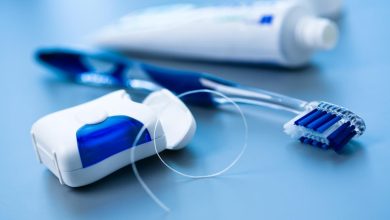Is Dental Caries an Infectious Disease? Unveiling the Contagious Truth

Dental caries is an infectious disease caused by bacteria that affects the teeth. It is a common oral health problem that leads to the formation of cavities and tooth decay.
Dental caries can be transmitted through saliva, making it contagious and easily spread between individuals through close contact. This article will explore the nature of dental caries as an infectious disease and discuss its causes, transmission, and prevention methods. Understanding the infectious nature of dental caries is crucial for promoting good oral hygiene and taking necessary precautions to prevent its spread.
Unveiling The Contagious Nature Of Dental Caries
Dental caries, commonly known as tooth decay, is often regarded as an infectious disease due to its contagious nature. Research has shown that dental caries is primarily caused by a complex interplay of bacteria, oral conditions, and host factors. The transmission routes of dental caries include direct contact between individuals, such as through sharing utensils or kissing. Moreover, bacteria play a crucial role in the development of dental caries. Various species of bacteria, including Streptococcus mutans and Lactobacillus acidophilus, are commonly found in dental plaque and produce acids that erode tooth enamel.
Factors contributing to the spread of dental caries include poor oral hygiene, dietary habits, and genetic predisposition. Individuals with a high sugar intake, limited saliva flow, or a weakened immune system are more susceptible to the disease. Furthermore, the microbial landscape of dental caries is diverse, with different bacterial species interacting and forming biofilms on the tooth surface.
Investigating the role of bacteria in dental caries formation
Researchers are continuously studying the role of bacteria in dental caries formation to develop effective preventive and treatment strategies. Understanding the contagious nature of dental caries is crucial for implementing proper oral hygiene practices, maintaining a balanced diet, and seeking regular dental care. By addressing the microbial aspect and transmission routes of dental caries, we can strive towards a healthier and cavity-free society.
Debunking The Myth: Dental Caries As An Infectious Disease
Debunking the Myth: Dental Caries as an Infectious Disease
Dental caries, commonly known as tooth decay, has been a topic of debate when it comes to its classification as an infectious disease. Exploring the definition of infectious disease reveals that it is caused by pathogens such as bacteria or viruses, capable of transmission from one individual to another. Assessing the characteristics of dental caries, it is evident that it shares some similarities with infectious diseases. The accumulation of bacteria in the mouth, particularly Streptococcus mutans, plays a crucial role in the etiology of dental caries. This bacterium ferments carbohydrates, producing acid that demineralizes the tooth enamel, leading to cavities.
Several pieces of evidence support the notion of dental caries as an infectious disease. Research has demonstrated that dental caries is transmissible through saliva, particularly from mothers to infants. Furthermore, studies have identified a correlation between the prevalence of dental caries and the presence of certain bacteria. The concept of dental caries as an infectious disease highlights the importance of practicing good oral hygiene, maintaining a balanced diet, and receiving regular dental care to prevent the spread and development of dental caries.
The Controversy Surrounding Dental Caries Transmission
Unraveling the debate over the transmission of dental caries has led researchers to examine both genetic factors and susceptibility as well as the impact of external influences. While some argue that dental caries is primarily a contagious disease, others emphasize the role of inherited susceptibility. Understanding the genetic factors behind dental caries can shed light on the mechanisms involved in its transmission.
Research indicates that genetic variations in salivary proteins and immune responses may contribute to an individual’s susceptibility to dental caries. Additionally, certain genes related to tooth enamel and saliva production have been found to impact the likelihood of developing dental caries.
Furthermore, external factors such as diet, oral hygiene, and socioeconomic status play a vital role in the spread of dental caries. Frequent consumption of sugary foods and beverages, inadequate oral hygiene practices, and limited access to dental care can increase the risk of dental caries transmission.
Preventive Measures Against Dental Caries
Dental caries, also known as tooth decay, is a highly prevalent infectious disease. Preventive measures play a crucial role in reducing its occurrence. Dental hygiene practices are key to preventing the transmission of dental caries. Ensuring proper brushing technique, including twice daily brushing with fluoride toothpaste, helps remove plaque and prevent tooth decay. Flossing daily is also essential to remove food particles and bacteria from between the teeth.
Fluoridation is another effective preventive measure against dental caries. It involves adding fluoride to public water supplies to improve dental health. Fluoride strengthens the teeth and makes them more resistant to acid attacks.
In addition to personal dental care, regular dental check-ups and cleanings are vital for preventing dental caries. These visits allow dentists to detect early signs of decay, provide professional cleaning to remove tartar, and apply dental sealants or fluoride varnish to protect teeth.
By following these preventive measures diligently, individuals can greatly reduce their risk of developing dental caries and maintain good oral health.
Collaborative Efforts To Combat Dental Caries
Collaborative efforts are crucial in combating dental caries, a widespread infectious disease. Community-wide interventions play a vital role in preventing and controlling caries. Taking a public health approach, it is essential to encourage oral health awareness and education among the general population to promote preventive measures.
Community-wide interventions involve various strategies such as promoting fluoride use, increasing access to dental care, implementing school-based preventive programs, and promoting healthy behaviors. Creating and implementing policies that support oral health, such as community water fluoridation programs, can significantly contribute to reducing the burden of dental caries.
Oral health education plays a pivotal role in empowering individuals to take control of their oral health. Programs that focus on educating both children and adults about caries prevention, proper oral hygiene practices, and the importance of regular dental check-ups can lead to healthier communities.
By fostering collaboration between healthcare professionals, policymakers, educators, and community members, we can create a comprehensive approach to combat dental caries and improve oral health outcomes for all.
.jpg)
Credit: dentistry.vcu.edu
Frequently Asked Questions Of Is Dental Caries An Infectious Disease
Is Caries An Infectious Disease?
Yes, caries is an infectious disease caused by bacteria.
Is Dental Caries A Chronic Infectious Disease?
Yes, dental caries is a chronic infectious disease caused by bacteria.
What Type Of Disease Is Dental Caries?
Dental caries is a type of disease that affects the teeth. It involves the breakdown of tooth enamel by acid-producing bacteria, leading to cavities.
Is Dental Caries An Infectious And Communicable Disease?
Yes, dental caries is an infectious and communicable disease.
Conclusion
Dental caries, also known as tooth decay, is undoubtedly an infectious disease caused by certain bacteria. This blog post has delved into the various aspects of dental caries, including its causes, symptoms, and prevention. By understanding that dental caries is an infectious disease, we can take necessary measures to maintain proper oral hygiene and prevent its occurrence.
Regular dental check-ups and practicing good oral care habits are essential in safeguarding our teeth from this contagious ailment. Start prioritizing your oral health today!





